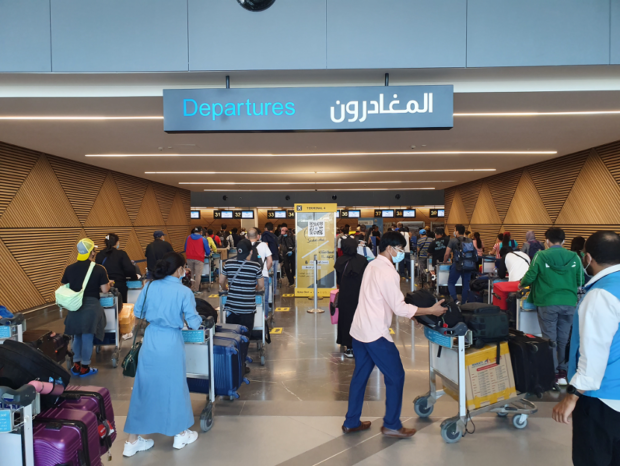Kuwait halts issuance of new visas to Filipinos

Image from the Facebook post of Philippine Embassy in Kuwait.
The Kuwaiti government’s decision to suspend the issuance of new visas for Filipinos was a “surprising” move as it was made without prior notice or explanation, an official of the Department of Foreign Affairs (DFA) said on Thursday.
Confirming earlier Kuwaiti media reports on the matter, Foreign Assistant Secretary Paul Raymond Castro said that based on the limited information reaching the DFA, the Kuwaiti Ministry of Interior issued a “blanket suspension’’ covering all types of entry visas, including those for work purposes.
“So all types of new entry visas (are affected), and we read that as business, tourist, or student. As long as it’s new it’s temporarily suspended. But of course it’s subject to confirmation,” Castro told the Inquirer.
He said the Philippine Ambassador to Kuwait, Jose Cabrera III, was already making arrangements to discuss with Kuwaiti officials the apparent “issues” that led to the suspension and “settle the matter amicably.”
Castro clarified that the suspension would not apply to Filipinos currently holding residence visas (Iqama) or Kuwait civil IDs.
‘Breached’ accord
He said the Philippine Embassy in the oil-rich Gulf state was officially notified about it only on Thursday, a day after several Kuwaiti media outlets reported the suspension.
The reports quoted a source from the Kuwait interior ministry as saying that the Philippines had “breached the conditions and provisions of the labor agreement” between the two countries.
“It was surprising especially because it came out in the newspapers first without the official channels; so it was a little difficult to react because we were reacting to a news article which was not official or coming from the government,” Castro said.
As of press time on Thursday, Kuwaiti officials have yet to communicate the alleged violations on the part of the Philippines, how long the suspension will last, or what courses of action should be taken to have it lifted.
Castro said the DFA had learned about the alleged violations only from the news reports, adding:
“According to the papers, it’s because we have a shelter (for distressed Filipinos) and we do rescues. But we have to give the Kuwaiti government time to explain, to give us the official version of (the reason for) the suspension.”
“Nonetheless, whatever issue there is, we hope that we are able to discuss that with the Kuwaiti government in our usual diplomatic manner,” Castro said.
Ranara slay
The suspension came three months after the gruesome death of Jullebee Ranara, a Filipino domestic helper in Kuwait who was killed and reportedly also raped by her employer’s teenage son, her body burned and dumped in the desert. The case resulted in the Philippines imposing a ban on the deployment of first-time workers to Kuwait, especially domestic workers.
In January, Migrant Workers Secretary Susan Ople reviewed and amended the terms of the country’s labor agreements with Kuwait to add more protection for Filipino workers, following an increase in reported cases of abuse.
According to Castro, there are currently close to 300,000 Filipinos in Kuwait, with more than half of them working as domestic helpers, making them the biggest migrant labor force in that country.